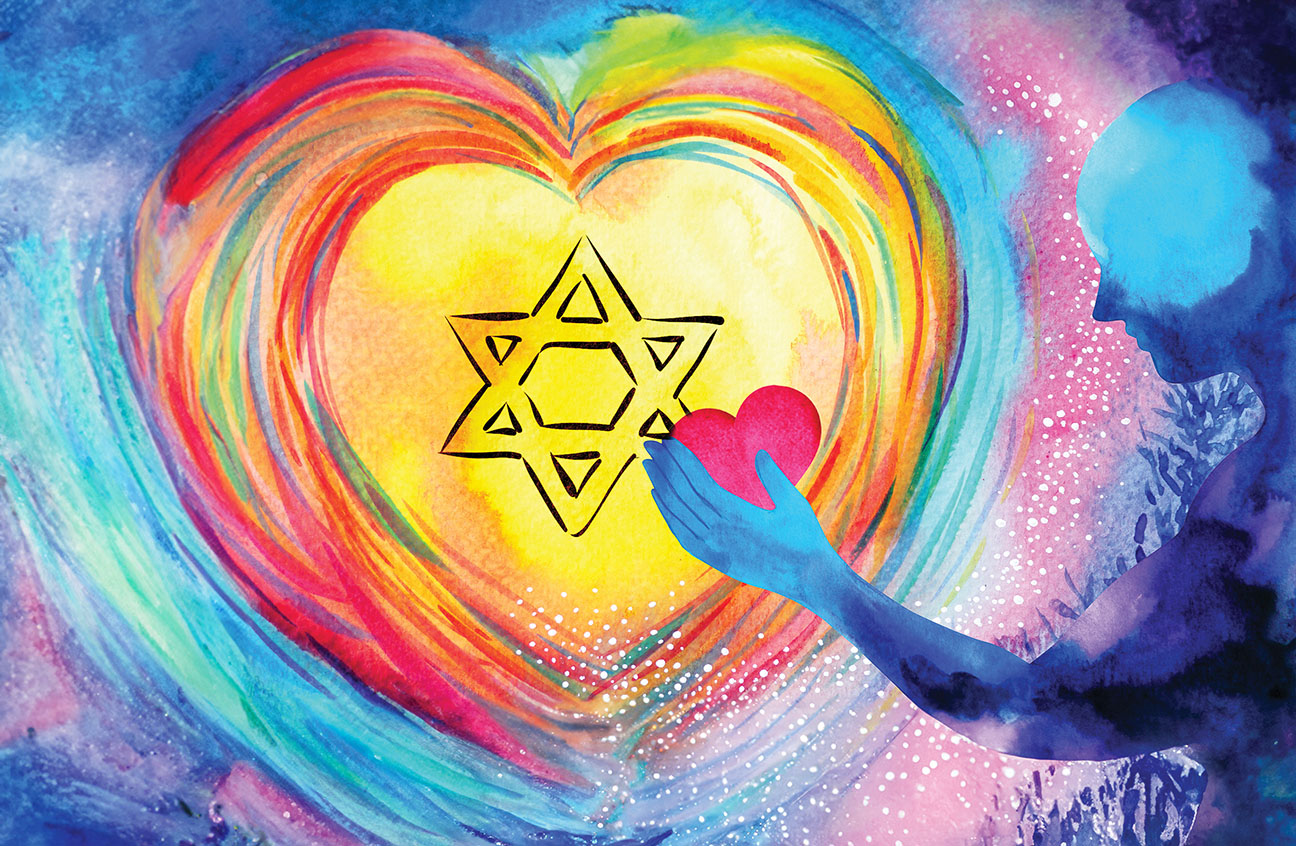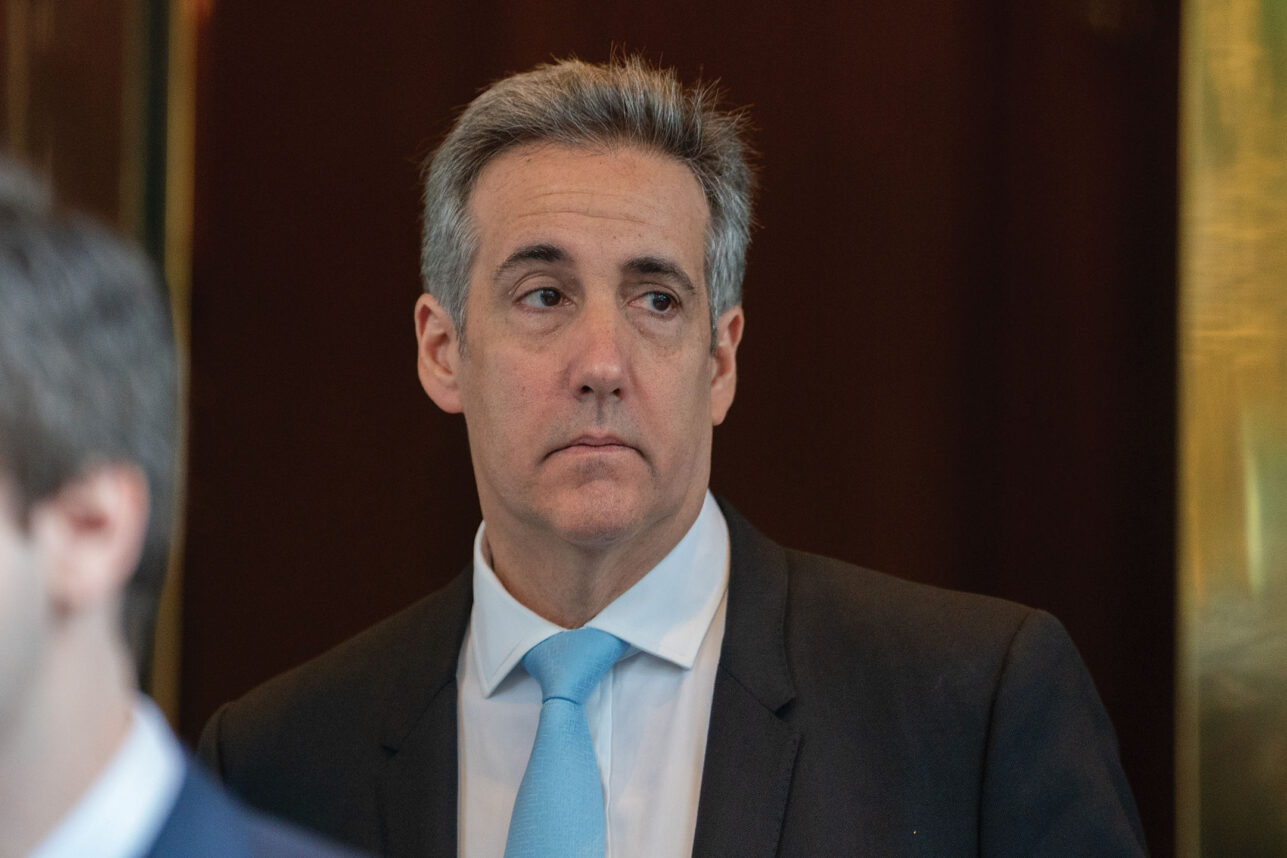 D-Keine/Getty Images
D-Keine/Getty Images As all great texts through history are abridged over and over again until they’re barely recognizable, so is the eternal Jewish conundrum through the Jew’s lifespan. What starts out as, “Why must I be Jewish in today’s world?” becomes, “Why must I be Jewish today?” which becomes, “Why must I be Jewish?” which inevitably becomes, “Why must I be?” The final evolution a simple, “Why?” is where I believe a new kind of growth begins. Before we get there, I would like to go over each stage in greater detail.
“Why must I be Jewish in today’s world?”
Amidst the ongoing conflict in Israel, with antisemitism once again on the rise, this question is beginning to worm into the minds of a new generation of young Jews. “Of all times, of all eras, why now?”
The petulant child asks his parents, “Can’t I take out the garbage later?” The aspiring movie star gets his first big role in a franchise he hates – “Can’t I wait to be a star?” As inconvenient as it is now, it will be just as inconvenient in the vague future date he has in mind, as it has been in any and all incarnations of the past.
It has never been an opportune time to be Jewish, nor will it ever be. Through the pogroms, through the Holocaust, through Hamas, the serpent rears his head. This is not so much the nature of Judaism as it is the nature of Man. We, as Jews, and – to a far lesser extent – as humans, are trapped in an abusive relationship with history.
The Jew will struggle at first to internalize this. As with any battered partner, he will invent rationales, make excuses. In the past, this might look like ratting out one’s neighbors to the Nazis. Today, it may take the form of anti-Israeli protests. At the core of it all is a plea: “I’m not one of THOSE Jews, I’m one of the good ones! Please spare me …”
This leads the Jew to the next phase in his cycle.
“Why must I be Jewish today?”
The young Jew will begin to treat his Judaism as he would a fair-weather friend. He will err on the side of Judaism when it is convenient. He will attend his seders, say his Shabbat prayers, celebrate his holidays – but his public face will be that of whatever crude facsimile of a gentile he can muster. “Please spare me, please spare me.” At best, he will be killed. At worst, he will find himself in a community of similarly self-hating Jews.
He, enabled by his newfound crew, will overindulge himself in self-pity and self-loathing until he finds himself in a very strange place. He will look and see he has become a glutton, and he may well begin to revel in it. Denouncing former ties, the Jew will project his self-hatred onto the world. The child is hurt, so he lashes out.
Amidst the contemporary web of lies brought on by the internet and social media, it is as easy as it ever was to fall into this trap. I have come to see it as a bit of a rite of passage to come across a former friend online and see a Palestinian flag in their profile – or occasionally worse. The “Devil Machine” has more than lived up to my father’s moniker. The Seal of Solomon bound the devil’s lips, but what good is that against a devil who can speak without truly speaking.
If – not when, but if – the Jew is lucky enough to emerge from this web of chaos, the Jew will find he has left the frying pan for the fire.
“Why must I be Jewish?”
This is perhaps the most quintessentially Jewish phase of the cycle, although it is not the last. The Jew, out of options, will curse God for his Judaism. The word “Israel” simply means “wrestles with God.” To be Jewish is to struggle with Judaism, and to struggle with Judaism is to struggle with God.
As a creator, I often ask myself why I should create in the name of Judaism, rather than simply in the name of Noah Mamet. “Why do I have to be a Jewish creator? Can’t I just be a regular creator?” Of course, what this really means is, “Can’t I be a gentile creator?” And therein lies the answer.
Everything the Jew does, whether he realizes it or not, is in the service of Judaism. Every creation of his is a Jewish creation, and ever single struggle he goes through is a Jewish struggle. This means that when a Jew speaks, he speaks for his people.
Everything the Jew does, whether he realizes it or not, is in the service of Judaism. Every creation of his is a Jewish creation, and every single struggle he goes through is a Jewish struggle. This means that when a Jew speaks, he speaks for his people.
Moses asked God why he was the one tasked with delivering the Jews from Egypt. God’s answer was: “Because.” And there, too, is our answer.
When the Jew comes to grips with the fact that his Judaism is intrinsically tied to his existence, there is only one place left for him to go.
“Why must I be?”
Why does he have to exist? If he stops existing, does that mean he’ll stop having to deal with being Jewish? This doesn’t necessarily have to take the form of suicidal ideation. It can simply be a condemnation of one’s own existence. Of course if he died, things would be easier for him. Yes, once the question of Judaism is out of the way, in creeps the question of humanity. This may be the first time the Jew feels he can find some common ground with the rest of the world.
This is also the first phase of the cycle that manifests differently for every Jew.
Like a boy cast out into the wilderness, the Jew is now on his own. He will have to reach his own conclusions. The wilderness is dangerous and vast. For me, it looked like years and years of therapy. For some, it may take the form of a gambling addiction, or a drinking problem. But at the core of this variable is a constant: He is, for the first time in his life, alone.
I was in this phase for a long, long time, and I do believe I am beginning to see light at the end of the tunnel. This brings us to the cycle’s ultimate phase:
“Why?”
And I’ll tell you when I find out.
FROM A YOUNG JEW by Noah Mamet copyright © 2024 by N. Mamet






















 More news and opinions than at a Shabbat dinner, right in your inbox.
More news and opinions than at a Shabbat dinner, right in your inbox.